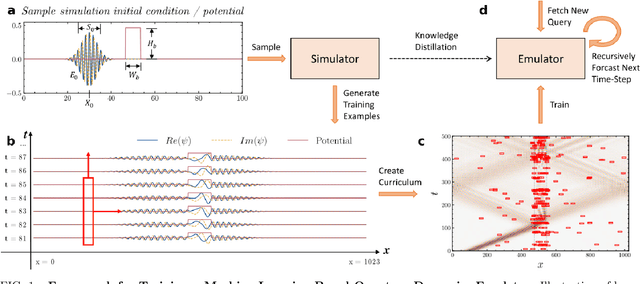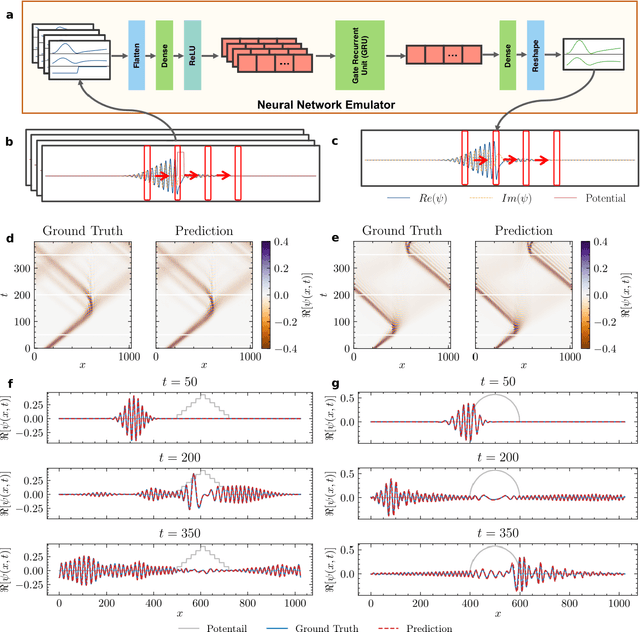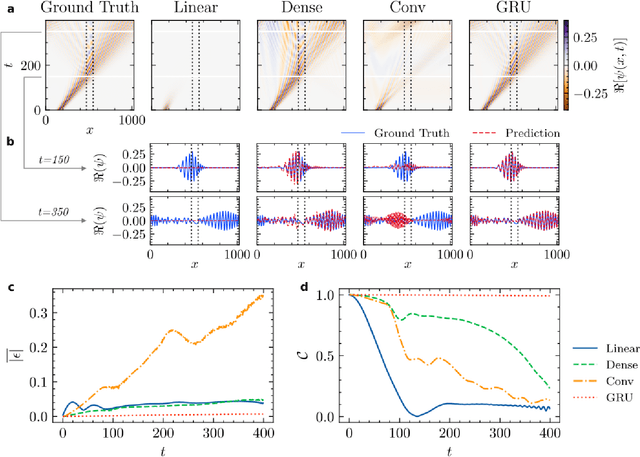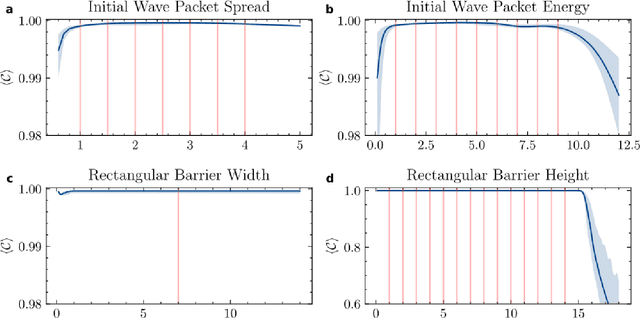Emulating Quantum Dynamics with Neural Networks via Knowledge Distillation
Paper and Code
Mar 19, 2022



High-fidelity quantum dynamics emulators can be used to predict the time evolution of complex physical systems. Here, we introduce an efficient training framework for constructing machine learning-based emulators. Our approach is based on the idea of knowledge distillation and uses elements of curriculum learning. It works by constructing a set of simple, but rich-in-physics training examples (a curriculum). These examples are used by the emulator to learn the general rules describing the time evolution of a quantum system (knowledge distillation). The goal is not only to obtain high-quality predictions, but also to examine the process of how the emulator learns the physics of the underlying problem. This allows us to discover new facts about the physical system, detect symmetries, and measure relative importance of the contributing physical processes. We illustrate this approach by training an artificial neural network to predict the time evolution of quantum wave packages propagating through a potential landscape. We focus on the question of how the emulator learns the rules of quantum dynamics from the curriculum of simple training examples and to which extent it can generalize the acquired knowledge to solve more challenging cases.
 Add to Chrome
Add to Chrome Add to Firefox
Add to Firefox Add to Edge
Add to Edge